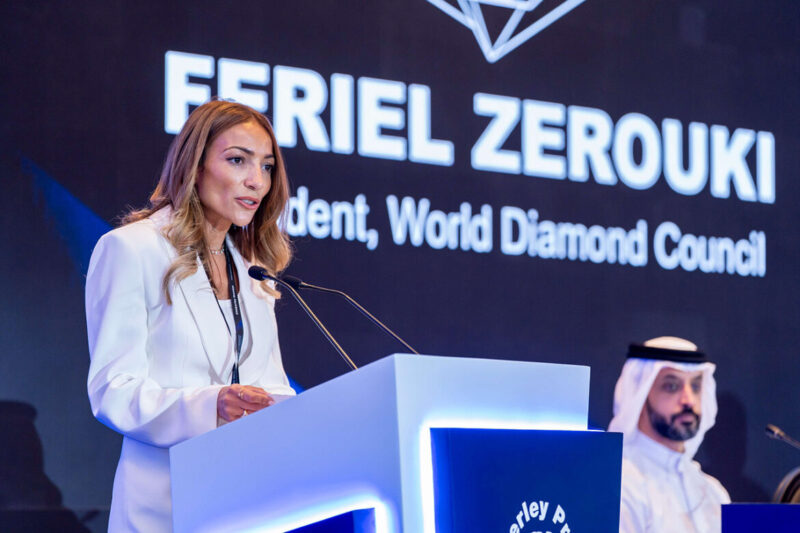The World Diamond Council (WDC) has called on participants of the 2025 Kimberley Process (KP) plenary to adopt a revised definition of conflict diamonds.
WDC president Feriel Zerouki called on member governments to support the proposed changes during the plenary’s opening session in Dubai. The proposal is the result of three years of collaboration between the WDC, the African Diamond Producers Association (ADPA), and the Civil Society Coalition (CSC).
Proposed Changes to the Definition
The current KP definition limits conflict diamonds to rough stones used by rebel movements to fund conflicts against legitimate governments. The revised definition seeks to expand this to include rough diamonds linked to serious human rights abuses, forced or child labour, systemic violence by State or private actors, corruption, extortion, and operations by armed groups under United Nations sanctions.
Zerouki stated that the expanded definition would allow the KP to respond to a broader set of circumstances affecting diamond-producing regions. She noted that the change would apply to 1.5 million artisanal diamond miners and enable the KP to act in areas where communities face risks not currently addressed by the scheme.
Stakeholder Support and Industry Context
The proposal has received support from all African diamond-producing countries. Zerouki said, “It is clear that Africa wants an expanded definition. All African diamond producers are supporting the draft definition. Africa wants progress. And it is clear that Africa sees the human cost of delay more sharply than anyone else in this room.”
The proposed changes aim to align the KP with international human rights standards and current responsible sourcing practices.
Challenges to Consensus
Zerouki warned that failure to reach an agreement would hinder the KP’s ability to adapt to current risks in the diamond sector.
“Anyone who chooses to veto, at this final stage, is making three strong statements: The first is that they believe conflict can only exist when it threatens a legitimate government and is fought by rebels. We all know that is untrue.
“The second is that they are turning their backs on diamond communities, many of whom are vulnerable to exploitation and need a mandate that includes them in its protection.
“The third is they simply want the KP to stall. They knowingly set impossible requirements – under the guise of doing the right thing – ensuring that expansion is set up to fail.”
She added, “The world has changed. The risks have changed. The expectations of consumers have changed. And the idea that we must stay silent to preserve consensus belongs to another era.”
Next Steps for the Kimberley Process
The KP plenary, taking place from 17 to 22 November under the chairmanship of the United Arab Emirates, brings together 86 participating governments, along with industry, civil society, and technical experts. Delegates will continue to assess working group progress, negotiate the definition proposal, and address governance, monitoring, and compliance measures that support the credibility of the certification scheme.




